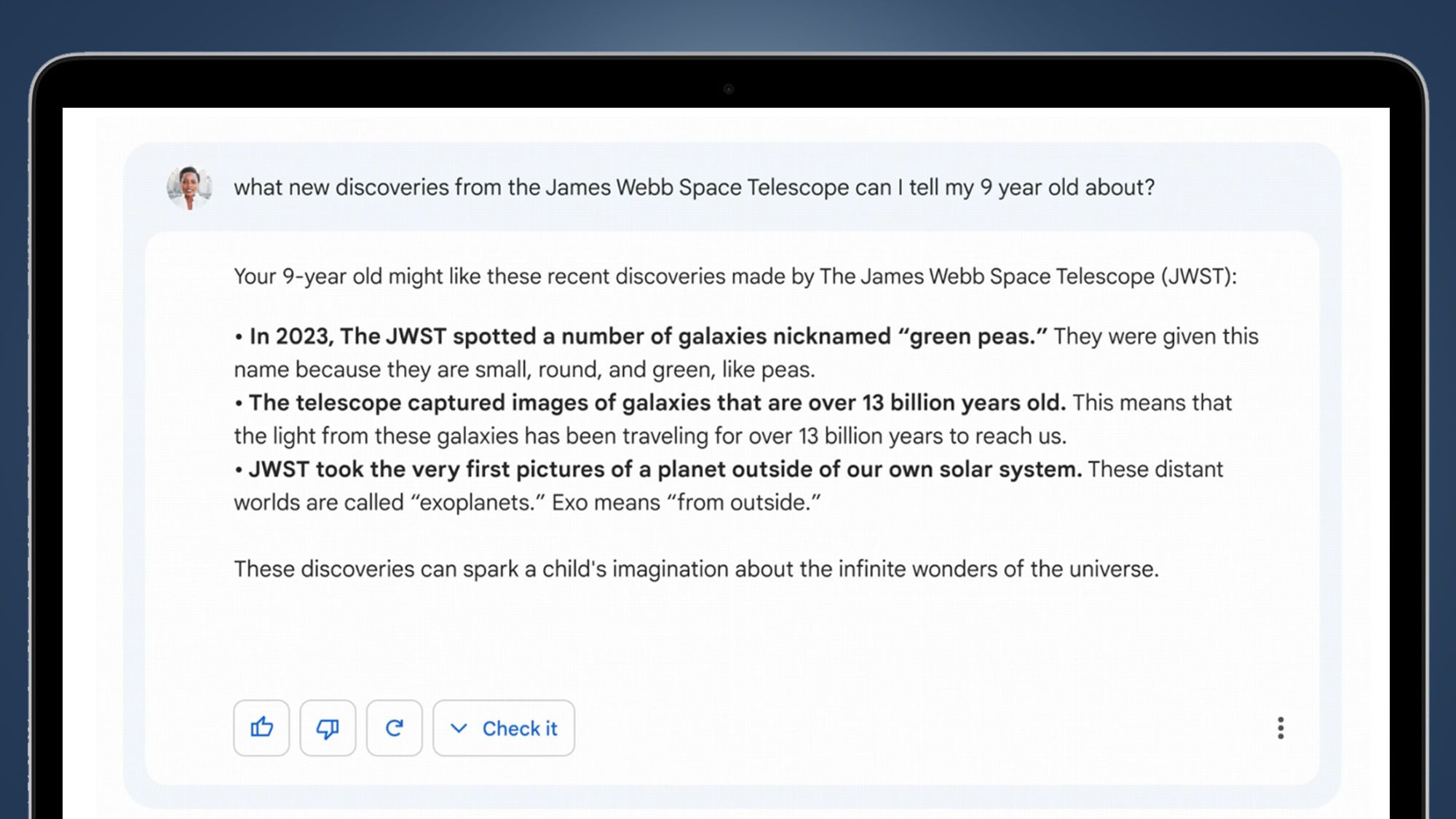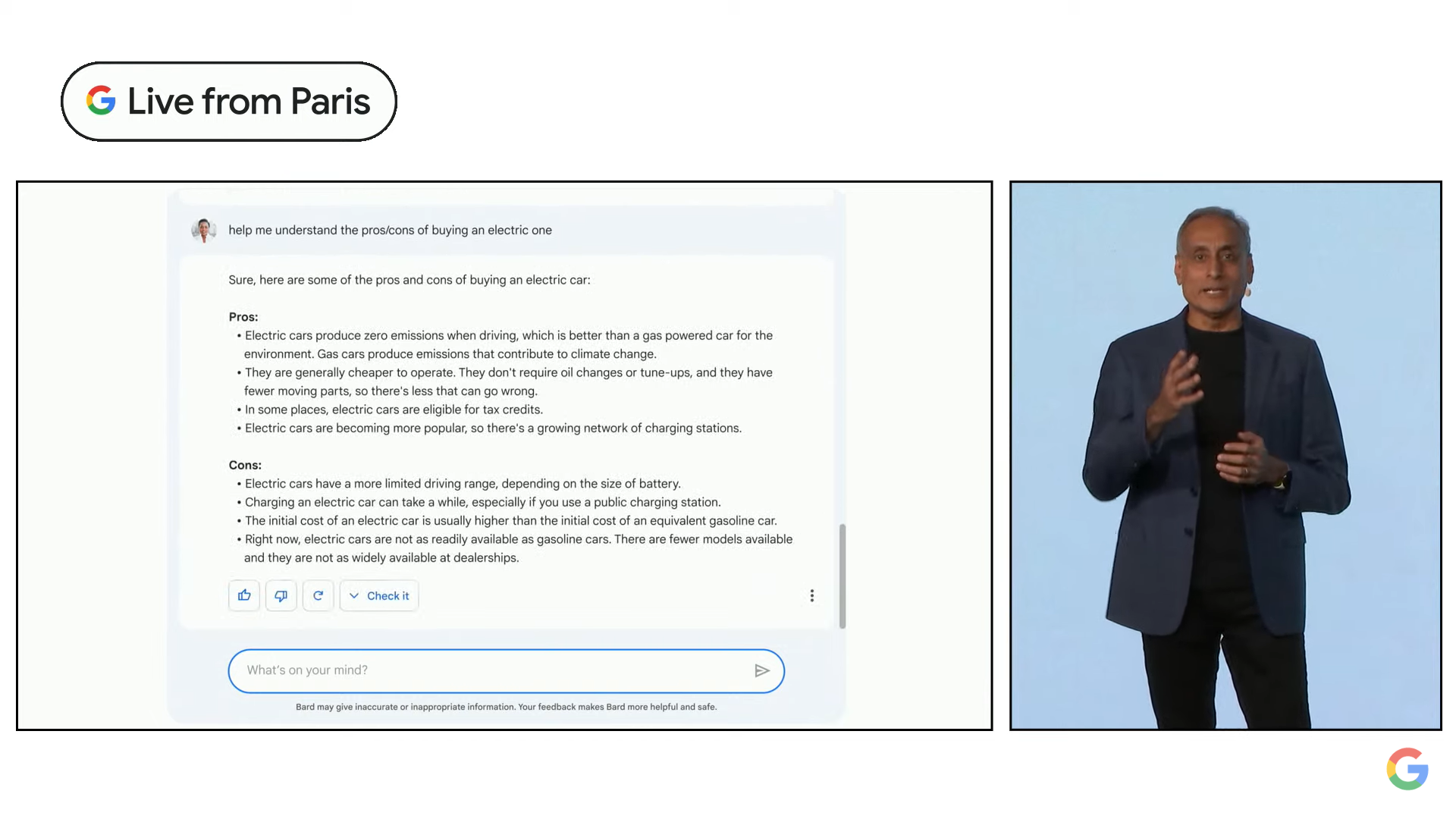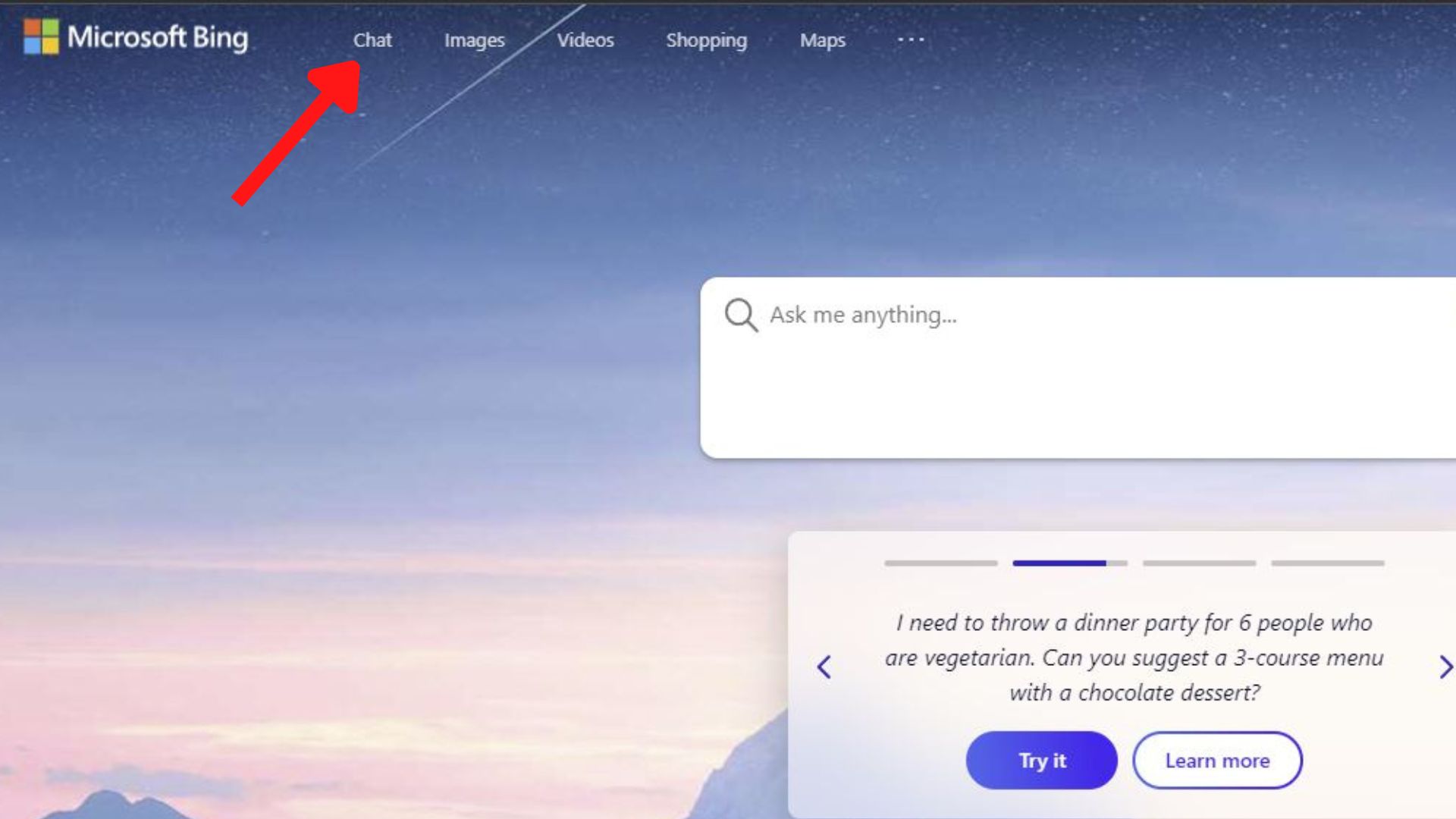
It hasn’t been a great week for Google. Not only did the company’s mistake-laden 'Live from Paris' event fail to live up to expectations, its highly anticipated new AI chatbot tool, Bard, has made a factual error in a demo video that was intended to show off the software’s impressive capabilities.
The blunder – which sent Google’s market value tumbling by $100 billion – saw Bard incorrectly respond to a user who asked: “What new discoveries from the James Webb Space Telescope can I tell my 9 year old about?” In the clip, the chatbot answers with a series of bullet points, including one that reads: “JWST took the very first pictures of a planet outside of our own solar system.”
NASA, however, claims that the first image of such a planet, called an exoplanet, was captured by the European Southern Observatory’s Very Large Telescope in 2004. In other words, Bard got the query wrong, raising concerns about the software’s future integration into Google Search.
Bard is an experimental conversational AI service, powered by LaMDA. Built using our large language models and drawing on information from the web, it’s a launchpad for curiosity and can help simplify complex topics → https://t.co/fSp531xKy3 pic.twitter.com/JecHXVmt8lFebruary 6, 2023
In essence, Bard is Google’s answer to the Microsoft-backed ChatGPT – an "experimental conversational AI service" that promises to be able to answer complex questions in an informal style. The software is powered by LaMDA (short for Language Model for Dialogue Applications), which, like ChatGPT, allows Bard to understand human language as it’s written.
But where Microsoft looks to be pressing full-steam ahead with its redesigned, AI-powered Bing search engine, Google isn’t being so hasty with its full-scale integration of Bard into Google Search – and for good reason.
In response to Bard’s very public blunder, Google gave the following statement to CNN: “This [error] highlights the importance of a rigorous testing process, something that we’re kicking off this week with our Trusted Tester program. We’ll combine external feedback with our own internal testing to make sure Bard’s responses meet a high bar for quality, safety and groundedness in real-world information.”
It’s clear, then, that Google is downplaying the real-world viability of AI-powered search engines for now. The company is still describing Bard as an "experimental” service, and the disclaimer underneath the program’s search box (see below) suggests that it “may give inaccurate or inappropriate information,” as it did in the case of the aforementioned James Webb Space Telescope query.
Sign up for breaking news, reviews, opinion, top tech deals, and more.

Analysis: Is Microsoft jumping the gun?
Microsoft, on the other hand, is turning up the heat on Google by releasing its AI-powered Bing to the masses – here’s how to use the new Bing search engine powered by ChatGPT, if you’re interested – when the program might not yet be ready for real-world use.

But Google has more to lose than Microsoft in this AI battle. On average, Google plays host to almost 90% of global search queries, where Bing caters to just under 10%. Microsoft is clearly hoping its rapid integration of ChatGPT into Bing will bump up that market-share figure before Google has a chance to respond with the full-scale rollout of its own Bard program.
Google, though, is clearly hesitant to pull the trigger on Bard if the software’s integrity isn’t watertight – an error-prone Bard would undermine the integrity of Google Search as a whole.
We’ll be reporting on all the latest developments in the ongoing tussle between Google and Microsoft in the coming weeks, so stay tuned to TechRadar for more.

Axel is TechRadar's Phones Editor, reporting on everything from the latest Apple developments to newest AI breakthroughs as part of the site's Mobile Computing vertical. Having previously written for publications including Esquire and FourFourTwo, Axel is well-versed in the applications of technology beyond the desktop, and his coverage extends from general reporting and analysis to in-depth interviews and opinion.
Axel studied for a degree in English Literature at the University of Warwick before joining TechRadar in 2020, where he earned an NCTJ qualification as part of the company’s inaugural digital training scheme.